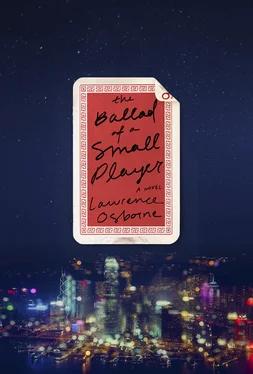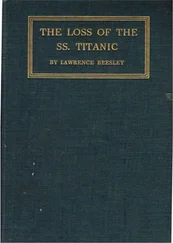“Maybe I am just a liar.”
“Is everything you do a lie?”
I nodded.
“I also have some red opium if you don’t like the rum. We can smoke it the old-fashioned way. With cake.”
She lit another oil lamp and set it on the floor next to us. She took out a glass pipe and prepared it; we angled it against us and puffed for a while. It was good stuff, juicy and pungent, and because I hadn’t smoked it in years it had the power of nostalgia. I noticed how oily my lips had become, and how the slime of the goose egg had coated the inside of my mouth, undissolved by the other foods. She laid out the sofa bed and we lay with the oil lamp flickering against the wet window listening to the cables, continuing to smoke. From down in that imponderable darkness I could hear the sea, angry as always, and the buoys clicking far out. We mixed the pipe with shots of rum.
She took off her clothes piece by piece, folding each one and laying it down in a pile next to her. There was an indescribable neatness about her. She folded and stashed everything, just as she had that first night at the Hotel An-Ma. When she was naked she rolled on her side and brought the quilt up against her chin and she asked me to tell a story. If I wouldn’t do that, I was to tell her what my family had really been like, and what my childhood had really been like, and not the lies I had told her before.
She inhaled deeply and her eyes began to slink away.
“Lies are stories, too,” she said. “But I don’t want lies now.”
I told her about Haywards Heath, my life as a lawyer in Cuckfield. I described my village school in Lindfield; I told her about law school in Nottingham. I made no mention of lordship or manors. I told the truth. I said: My father was a salesman for a vacuum cleaner company in Croydon. Thirty-five years with Silverliner Air Systems. He was in debt all his life. Died of an infarction on the commuter train to work at Bolney station one summer morning in 1979. Dropped dead like a stone reading the Daily Telegraph with a scone on his lap. Crumbs everywhere. Nothing left to the wife and son. Buried in Pyecombe cemetery with his parents. The Silverliner Anti-Static Dust-Buster 2070 left suspended in midair, his house reclaimed by the bank.
“Ever since,” I said, “I’ve had a strange relationship with vacuum cleaners. I think of them as demonic in some way.” He was a teetotaler, a drab. He organized campaigns against bingo in Haywards Heath. Bingo, the work of Satan! He wore ties with the Middlesex cricket insignia and arrived at work at 7:59 every morning for thirty-five years. He never swore, not even in the bath. He swept his Brown and Taylor suits every night with an anti-lint brush, read The Hobbit to me in bed when I was nine, and led in general a life of honor and pride, a rock to his family and community, a true man in the quiet English way that no one today understands. A man in gentle debt merely because he kept to his word with regard to his wife and his garden. My role model for most of my life, until I rolled heavily into debt myself.
I knew I was talking to myself, and soon she was sleeping against me as if she had never been listening at all. I laid her head on the pillow next to me. I reached back and turned off the oil lamp and for some time I lay there agonizing about my cloudy future. Then, as if a counterweight, the past came back again and soon I was immersed in it in the way that you fall quietly into a nightmare and cannot climb out. How meaningless and repetitive a human life is, and how mechanical mine had been, I thought, until I discovered baccarat and the Chinese. A degree from Nottingham in something as useless as the law, a job at Klein and Klein, a year in Hong Kong with one of the big firms and then my employment in Haywards Heath at Strick and Garland settling wills (a lot of rich old widowers in that part of the world, as I have mentioned, rich and easy pickings for a smart young man). I became a secret gambler. I went to Paris once to help settle a claim for a client and while I was there I went to the little casino at Enghien-les-Bains. The casino sat by the lake with a suburban respectability and it was filled with off-duty policemen and failed businessmen, and what is sadder in the human world than a failed French businessman? It was nothing more than curiosity that drew me in there, but once inside it was a revelation.
I had some cash on me so I played at roulette, lost a few euros, and played and lost a few more. That night there was an old paratrooper who had fought in Algeria at the same table as me, and as I continued to lose — we being virtually the only two players at the table — he took off the patch that covered a missing eye and laid it on the table in front of him as a mark of respect. Up to that moment I hadn’t known what it would be like to lose money in this way — so pointlessly — and this curious offhand gesture reassured me, I didn’t know why. The vacated eye was sealed over with pale scar tissue, and this made the other working eye exceedingly jaunty. “It’s like losing the men in your unit,” he said half-seriously. “The mission goes on.”
Then he said: “Un homme qui ne joue pas c’est comme un homme qui s’est jamais marié—c’est a dire un petit con.” A man who doesn’t play the tables is like a man who has never married — a little shit.
That was the beginning of it. I’ve had fond memories of Enghiens-les-Bain ever since. It was nothing more than a taste for solitude, a capacity for solitude. Thereafter I went every month on business and gambled on the side. It became a secret hobby, as it often does. I started to play baccarat online, sometimes winning hundreds of pounds a month. I became a sharp at it. And then I began to lose. Soon, I was traveling to Birmingham at the weekends to play the tables. You could not imagine anything more pathetic. I thought of nothing else. It was like a grudge. I was convinced I had been stiffed the previous weekend when I had lost everything. I couldn’t accept it. And of course there was nowhere serious to gamble in Sussex in those days, or even in London. I felt cut adrift. It really didn’t seem fair. I went to Paris, too, and got into the swing of roulette, a terrible game really. There was no adrenaline in it, but it was better than nothing. One only has to play a given game for a few months before it becomes second nature; I became good at everything I played, though that did not mean I won consistently. What I discovered was a taste for losing. I understood in some way that playing something well and losing at it had something to do with playing it over the long haul. But I didn’t care, and I dare say no player does.
She was now awake and relit the pipe and we had another go at it, and soon the balance of our talk had shifted again and she began to tell her own story, as if mine needed to be evened out by hers. I had become a secret player inside a fairly comfortable life, but she had migrated from Kham.
“When I left Sando, I had to hitch a ride to Daocheng. My mother hoped I would help her eat, so she didn’t stop me.”
She sucked in the smoke and sank back onto the sofa bed.
“I didn’t mind. I was happy to wait the whole night in Daocheng for the bus.”
“How old were you?”
“Fifteen. It was illegal to leave. I walked to the bus station and waited there all night. There was a bus south in the morning. I had enough to get all the way south. I got a job as a hostess in Guangzhou. I bought some makeup and some dresses. Some shoes. I became good at it. I had the looks, the youth. I made hard cash every week under the table. I shared an apartment with five girls. We all cooked together. In the summer we went to Hainan and slept with old men. We worked the hotels.”
Читать дальше












